Our partners
Discover the organizations involved in the project
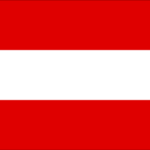

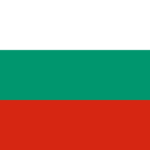
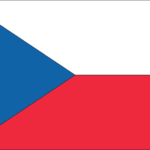


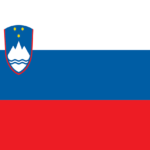

Austria
JORE Joanneum Research has been involved in numerous national and international projects in monitoring forests using remote sensing technology over the past 20 years. JORE was leading the FP7 project EUFODOS (European Forest Downstream Services) and has been participating in ESA and EU funded programmes, such as the GSE-Forest Monitoring project series or the H2020 projects DIABOLO and EOMONDIS. Further, JORE has sound experience in Copernicus services as responsible partner for the validation of the Forest (and several other) Copernicus High Resolutions Layers for the European Environmental Agency (EEA). Publications in high ranked scientific journals proof the sound knowledge and expertise on remote-sensing based forest monitoring.
The Nationalpark O.ö. Kalkalpen manages about 20.850 ha of protected area (Nationalpark IUCN Cat.2, Ramsar, Natura2000) whereof 5.250 ha are listed as UNESCO World Heritage “Ancient and Primeval Beech Forests of the Carpathians and other Regions of Europe”. NPK has experienced staff for Beech Forests evaluation and involved in the projects such as, LIFE, Ecokarst (Interreg Danube), Beechpower (Interreg Central Europe), AlpBionet (Interreg Alpine Space), Netzwerk Naturwald – Network Natural Forests, Wildnis & Biodiversität I-IV (LE07-13, LE 14-20), Wildnis erleben und vermitteln (LE 14-20). NPK has an experience and data from former nature inventory research
E.C.O. Institute of Ecology is a company which has been amongst the global leaders for planning, consulting, research and training for nature conservation, certified regions and protected areas since 1992. The company´s expertise includes the fields: applied nature conservation and landscape planning; assessment and management of eco-systems; Participative development of regions, conservation areas and institutions worldwide: innovative visitors´ attractions. Throughout the years E.C.O. implemented numerous projects internationally covering wide range of topic

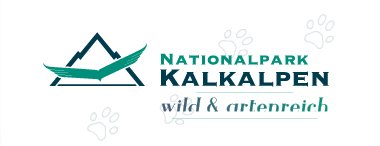

Belgium


The Research Institute for Nature and Forest (INBO) is a research institute of the Ministry of Environment, Nature and Agriculture and is part of the legal entity Flemish Region (Vlaams Gewest – VLGEW) INBO is the Flemish research and knowledge centre for nature and its sustainable management and use. INBO conducts research and supplies knowledge to policy makers and other end-users involved in for instance nature conservation, forestry, or agriculture. The institute is also a platform for knowledge transfer between stakeholders. INBO publishes its results as open data and provides data for international reporting. As a leading research institute, INBO has been involved in several EU-projects (EBONE, Lifewatch, FutMon, FITHydro, eLTER, …) and currently co-ordinates the ALTER-Net network.
INBO is monitoring forest dynamics in unmanaged forests in Flanders, and also coordinates other research in these spontaneous developing forests in this region. It was involved in several COST actions concerning forest reserves and protected forests, e.g. action E4 aiming to harmonise monitoring techniques and COST action E27 on the analysis and harmonisation of protected forest areas. INBO also compiled a scientific report on the Sonian Forest, that was included as a UNESCO world heritage into the category of ‘Ancient and Primeval Beech Forests of the Carpathians and Other Regions of Europe’.
The Sonian Forest Foundation was founded in 2019 and aims to act as a voice for the Sonian Forest, beyond Belgium’s regional borders. The Foundation bases its work on the interregional structural vision that was developed for the Sonian Forest. In the framework of this vision, the Foundation encourages initiatives that help to preserve the ecological heart of the Sonian Forest with its vulnerable fauna and flora. Therefore, the coordination of a good and structured public reception around the different entry points, the development of a clear communication, the linking of the forest with its environment and the fight against fragmentation are among the core tasks of the Foundation.
To fulfill this mission, the Foundation must be able to count on the support of the general public. This requires multilingual and uniform communication, but public participation is also of great importance. That is why the Foundation works closely with the relevant partners of the Sonian Forest on whose years of experience and expertise it can rely. The Foundation coordinates communication campaigns to inform the various users of the forest.
Bulgaria
NPCB has been established as an independent legal body under the direct authority of the Ministry of Environment and Water of Bulgaria with headquarters in the town of Gabrovo and with the operational objective: management and guarding of the Central Balkan National Park; implementation of the management plan; commissioning of activities, provided for in the Management Plan and in the development plans and projects; co-ordination and control activities, conducted by other authorities, organizations and persons; monitoring of the environmental media and database maintenance; imposing penalties for infringements.
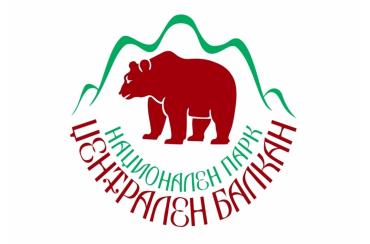
Czech Republic

The Czech University of Life Sciences is a public university (according to Act No. 111/1998 Coll. on universities).Currently there are 27 public universities and 2 state universities in the Czech Republic.
Currently the university has more than 18 000 students (10% are international students), 6 Faculties and 1 Institute. CZU offers over 170 accredited study programmes at BSc, MSc and PhD levels (in 9 BSc, 20 MSc and 18 PhD programmes the language of instruction is English).
Germany
The City Administration of Angermünde (CANG) has the core area of the World Heritage component part “Grumsin” on its administrative territory. Therefore, CANG is active in the fields of stakeholder involvement, communication of the WH, tourism development including infrastructure and public transport, establishment of international exchange of youth with other WH Beech forest areas, activation of involvement of local schools etc. CANG is a project partner within the actual Interreg Central Europe Project BEECH POWER and leads the Work package “Empowering World Heritage Beech communities as model for ecosystem-based sustainable development” in the named project.
The Centre for Econics and Ecosystem Management at the Faculty of Forest and Environment of the Eberswalde University for Sustainable Development was engaged in several projects related to the development of the WH site of ancient and primeval beech forest. The Centre for Econics and Ecosystem Management has further gained scientific knowledge and experience on the topics of ecosystem thermodynamics and microclimate related to forests in Germany, Europe and further countries over more than 10 years. This led to the development of corresponding indicators and methodological approaches including spatial analysis and microclimatic measurements in the field, which will be applied for the quantification of forest ecosystem services related to landscape cooling and climate buffering.
The Northwest German Forest Research Institute (NW-FVA) is a joint state research organisation for Hesse, Lower Saxony and Saxony-Anhalt and Schleswig-Holstein.The NW-FVA is responsible for applied forest research and for advising forest owners under all ownership titles in the participating states. As part of an administrative agreement, the NW-FVA supervises experimental sites in the Rhine-Palatinate. Furthermore, through government enactments, it is responsible for the continuation of old Prussian experimental trial series in North Rhine-Westphalia and Saarland. NW-FVA is divided into 5 subdivisions, which have the research fields Forest Growth, Forest Protection, Forest Genetic Resources, Environmental Control and Forest Nature Conservation.

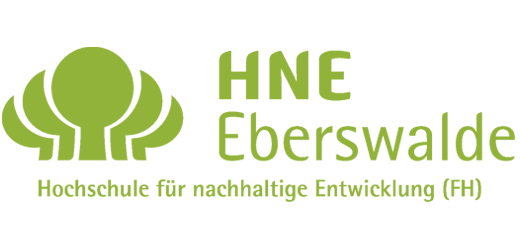

Italy


The Abruzzo, Lazio and Molise National Park (NPAB), besides being the oldest national park in Italy, was established in 1923 to protect nature and to save certain wild animals from extinction. It is situated in the heart of the central Apennines, between Abruzzo – where is located the majority of the park – Lazio and Molise regions, and its 50,000 hectares are home to 25 towns. It is famous in Italy, and all over the world, as a model for nature conservation and environmental safeguard, thanks to the “zoning” of the territory, leading to the integration between conservation and development, and to an agreement with the Park Municipalities to solve city planning problems. The Park territory is divided in 4 different zones.
DAFNE (UNITUS), one of 120 ltalian Departments of Excellence, is the only university department in Lazio with teaching and research competences in the fields of agriculture, forestry and nature conservation science, and agro-biotechnology. Concerning forests, researchers at DAFNE have been discovering and measuring old growth forests, including the one hosting the oldest trees in Europe, using structural (dendrometric) and dendroecological approaches. In past and recently published research, they have developed new methods for describing the bioclimatic organization of forest ecosystems, track natural forests dynamics (e.g. disturbance regime, climate change response) with tree-rings, identifying structural and growth traits connected to the acquisition of the old growth status, quantifying the naturalness degree of old growth forests according to both structural and tree-ring attributes.
Slovenia
The Ministry of the Environment and Spatial Planning helps provide a healthy living environment for all inhabitants of the Republic of Slovenia. Ministry promotes and coordinates efforts towards sustainable development. Adapting to increasingly pronounced climate change is one of the key challenges. The Ministry strives to raise the aware-ness of the inhabitants of the Republic of Slovenia about the shared responsibility for the state of the environ-ment, nature and space.
One of basic tasks of the Ministry is preparation and implementation of environmental legislation. The Environ-mental Protection Act (EPA) gives a framework also for nature protection and biodiversity conservation. Based on the EPA, the National Assembly adopted in 2020 the National Environment Protection Programme with pro-grammes of measures until 2030. This Programme includes also The National Nature Protection Programme with Strategical Plan of Biodiversity Conservation
The University of Ljubljana (UL) is a public autonomous educational, research and artistic HE institution with a rich tradition. The department of forestry was responsible for establishing the network of Slovenian forest reserves in 1970’s under prof. dr. Dušan Mlinšek, containing 171 forest reserves covering 9600 ha. Since then, researchers at the department have been conducting continuous monitoring and research in these reserves, resulting in long term information about forest dynamics. In 2011-2013 dr. Thomas A. Nagel and his team conducted an applied research project funded by the Slovenian Ministry for agriculture, forestry and food in order to evaluate the naturalness of the existing reserve network in Slovenia, and to provide suggestions for new forest reserves. The UL staff, therefore, has the necessary knowledge and experience to successfully accomplish its assigned project management tasks in the project.

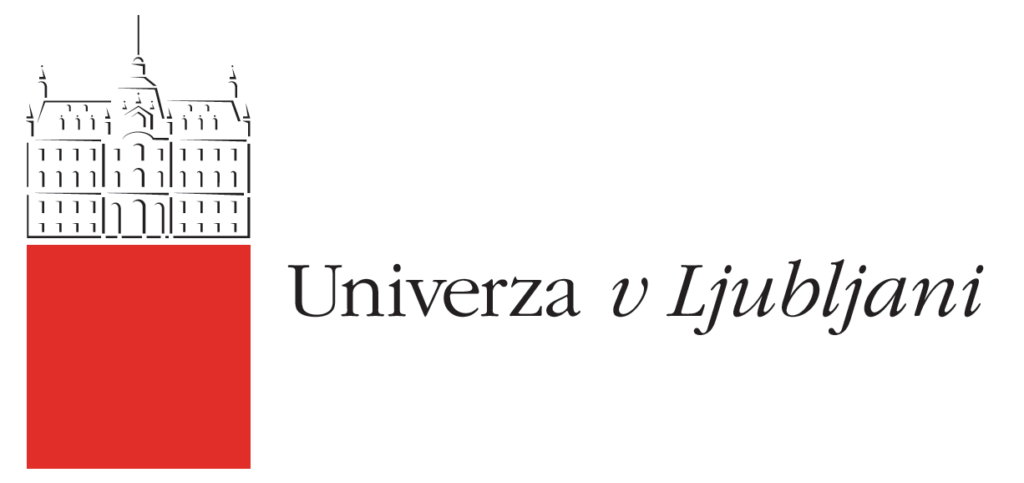
Ukraine

Carpathian Biosphere Reserve (CBR) is a nature-protection, scientific-research institution of international importance. Since 1993 is a part of the UNESCO World Network of Biosphere Reserves. To the main directions of work of the CBR relate the following: protection and conservation of nature complexes and ecosystems, conduction of scientific research and monitoring, ecological education and sustainable development, including sustainable tourism. Primeval beech forests of the CBR are the part of UNESCO World Heritage Site since 2007 (over 21 thousand hectares). Five times CBR was rewarded by the Council of Europe with a Diploma for Protected Areas for the outstanding results in protection, conservation and study of nature of the Carpathians. CBR closely cooperates with many scientific and nature-protection institutions of the world. Including: protected areas of the Carpathian region, Biosphere Reserves of Europe, Swiss Federal Institute for Forest, Snow and Landscape Research (WSL), Eberswalde University for Sustainable Development (Germany), etc. CBR participated in numerous international scientific and nature-protection projects in particular: The Ukrainian-Dutch project “Primeval forests of Transcarpathia (Ukraine)” as core areas of the Pan-European ecological network”, implemented in 2006-2008; Cooperation in Forest Research Ukraine-Switzerland with Swiss Federal Institute for Forest, Snow and Landscape Research WSL(from 1999 till the present day); “BIOREGIO Carpathians – integrated management of biological and landscape diversity for sustainable regional development and ecological connectivity.
